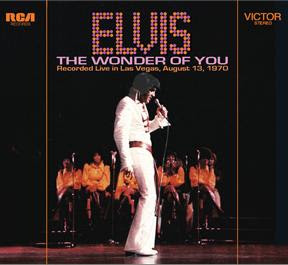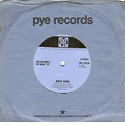
Oh boy, now this is going to be a toughie; 'Woodstock' manages to funnel so many of my own personal bête noirs into such a small seven inch pot that my head spins with knowing where to even start. There's just so many loose threads for me to pick at.
OK, well I'll start at the beginning; 'Woodstock' the song was written by bête noir #1 Joni Mitchell. Mitchell is a woman who only takes two things in life seriously - everything she says and everything she does. And she took Woodstock very seriously, though not seriously enough to actually be there; although slated to be on the bill, she cancelled in favour of a chat show appearence and so her tribute was written from an idealised viewpoint one step removed from fact. As a song, 'Woodstock' attempts to summarise the events that went down on Yasgur's Farm the previous year and re-cast them with the significance of a pivotal cultural point of the decade, as if everything had been building up to this and that the 'this' is an ideal worthy of aspiration. Hippies in a field of mud, basically. Or bête noir #2.
I can't honestly say I've ever been to enamoured by the hippy errr.... ethos. Sure, a lot of good music came from the era, but then the Nazi's built a lot of nice roads too, complete with their own underlying ideology of what a heaven on earth should look like. Or heaven for some people anyway. By harking back to an imagined state of pre-fall grace, Mitchell pulls a similar trick of putting the world to rights with that recurring "And we've got to get ourselves back to the garden" refrain. But in this in itself Mitchell is being ambiguous.
For is she suggesting that the post 1969 world needed to get back to the stardust and golden values of Woodstock after those new butterflies soon turned back into bombers at Altamont a few months later? Surely it was a bit too early for nostalgia, and in any case the idea that watching Janis Joplin on bad acid presents a vision of earthly perfection is laughable in its audacious naivety. Or is it perhaps a call for the masses to take the cause to another level and aim to re-build some pre-fall Arcadian paradise that's always one step behind the present, much like the ruined castles and buildings that litter the painted landscapes of Pannini and Poussin and show a recent past that was 'perfection' but is now no more?
Either way, there's a one eyed pretentiousness in 'Woodstock' (as there is in most of Mitchell's output) that doesn't sit well with what it's describing (i.e. hippies in a field of mud). Mitchell may well view herself as a latter day Rousseau, content to see a world in a grain of sand, but again, she wraps it up in a self serving idiot's guide to naturalism. And with concepts of 'nature' and 'natural' being a particular hobby horse of mine, it has the general effect of poking me through the bars with a stick to goad me into a reaction. Which I have done, but I at least know when it's time to shut up. And so I will.
Her own original version of 'Woodstock' is a simple acoustic affair where her slightly condescending vocal sweeps childlike through her chords with the wide eyed wonder of it all. Although an all English band, Matthews Southern Comfort hammer flat the rough edges and re-arrange it horizontally as a sun baked, minor key AOR ballad with steel guitar washes. But despite Iain Matthews singing with a resigned and regretful conviction that's (if anything) more pronounced than Mitchell's, the folk rock arrangement takes all that was bland about late Byrds and/or Bread and ramps it up to eleven.
Haunting and eerie or sappy and substanceless - I know which my money is on; 'Woodstock' is an early British entry into a West Coast/Laurel Canyon genre made up largely of tortured rich kids telling the rest of the world how hard their lives were or else imagining a world so far removed from their own as to be beyond parody. Or bête noir #3.
I seem to have been colouring in outside the lines somewhat with all this, and I'm probably saddling MSC's version of 'Woodstock' with more baggage than it perhaps deserves. Nevertheless, my observation of 'sappy and substanceless' is no less accurate for being a bit tart; 'Woodstock' is little more than easy going fodder for the now grown up hippies to unwind and reminisce to with a G&T after a hard day at the office. And just like them, 'Woodstock' the song is boring. Harmless but boring.
 'I Hear You Knocking' is a cover of a popular 1955 R&B track originally recorded by Smiley Lewis. Lewis's take is a slow, piano led strut that sounds like it was recorded in a whorehouse (a fine version by Gale Storm recorded the same year follows the same structure, except she sounds like one of the whores getting rid of a client).
'I Hear You Knocking' is a cover of a popular 1955 R&B track originally recorded by Smiley Lewis. Lewis's take is a slow, piano led strut that sounds like it was recorded in a whorehouse (a fine version by Gale Storm recorded the same year follows the same structure, except she sounds like one of the whores getting rid of a client). 











